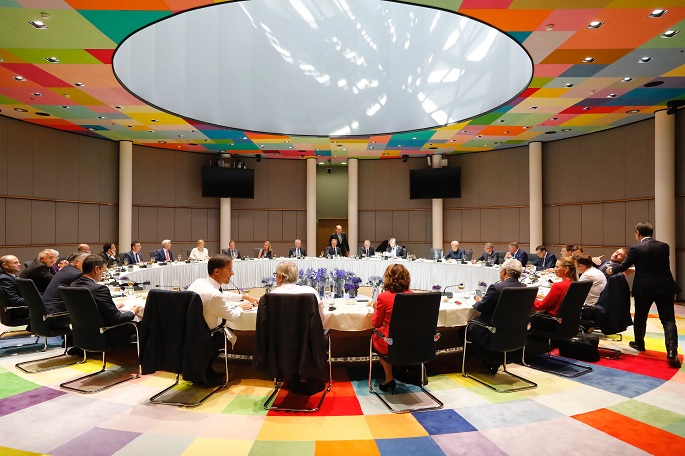EU enlargement remains on track
Published : 05 Jul 2019, 22:00
Updated : 09 Jul 2019, 14:47
European leaders attending the Western Balkans Summit in Poland tried to reassure public opinion on Friday that the European Union (EU) integration process is on track despite delays.
"I share (French) President Emmanuel Macron's view that the EU internal mechanisms must be improved. I don't see that as an abandonment of the accession talks," German Chancellor Angela Merkel said on Friday during a press conference at the end of the three-day Western Balkans Summit in Poznan, Poland.
Merkel was reacting to a statement made on Monday by Macron, who had declared that he would oppose any further enlargement of the European Union until the Union itself undergoes a "deep reform."
Last year, Macedonia agreed to change its name to the Republic of North Macedonia following a deal with Greece, the country which had opposed Macedonia's EU entry on account of a conflict over its name.
Nevertheless, North Macedonia and others in line for accession have so far failed to receive a concrete entry date, in part because of internal problems, and also because of EU "enlargement fatigue".
North Macedonia's Prime Minister Zoran Zaev nevertheless put on a brave face at Friday's press conference.
"I would like to underline that North Macedonia does not expect an immediate entry date. In a few years, we will be a member for sure, but we have to still work to improve," Zaev said.
"Our citizens love Europe so much that they were even ready to accept the name change -- this is proof that we belong to the EU," he said.
At the summit, however, some Western Balkan leaders were more critical of the EU's indecision.
"A question arises about the purpose of such meetings, especially after certain European leaders say they have no intention to discuss enlargement," Serbian Foreign Minister Ivica Dacic said on Thursday in Poznan.
"If it's really so, I don't understand the point of such gatherings," he added.
The Western Balkans Summit in Poznan was the main event of the Polish Presidency of the Berlin process in 2019. The Berlin process is a German initiative that brings together partners from the Western Balkans and some EU member states. Next in line to jointly take over the rotating presidency of the process are Bulgaria and North Macedonia.
The summit kicked off on Wednesday with a meeting of think tanks specialized in the Western Balkans. On Friday, the summit ended with a plenary session, attended by Germany's Merkel, French Prime Minister Edouard Philippe, UK Prime Minister Theresa May and EU High Representative for Foreign Affairs Federica Mogherini, among others.
During the summit, the EU confirmed its commitment to strengthen cooperation with the Western Balkans through a set of concrete measures and associated financing with a focus on transport and energy, digital development, economy, security and good neighbourly relations.
Polish leaders hosting the event reiterated their support for enlargement.
"Without the Western Balkans' integration, together with their beautiful traditions and various cultures, Europe will not start breathing easy," Polish President Andrzej Duda told the plenary session on Friday.

